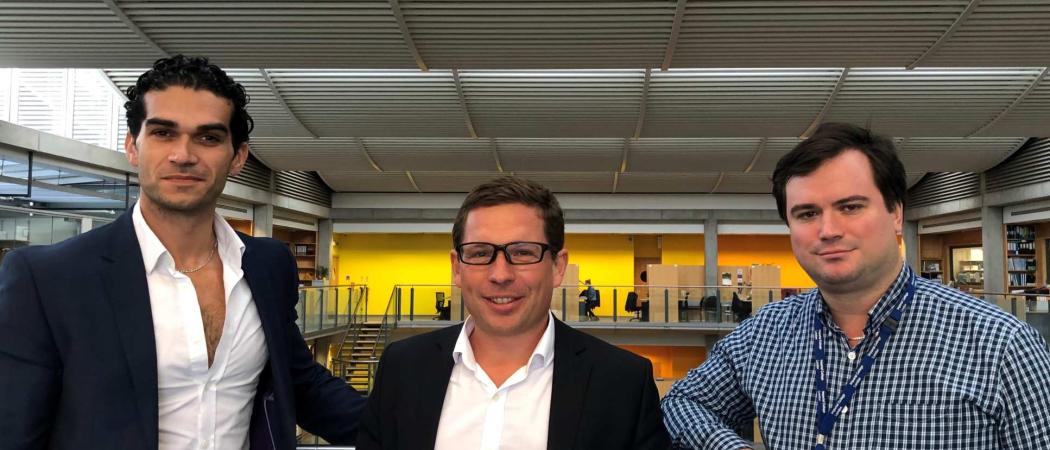
Designing the future of food: Imperial researchers Kirill Veselkov (centre) and Ivan Laponogov (right) with chef and founder of Kitchen Theory, Josef Yussef (left). (Credit: Kirill Veselkov)
Combining AI technology, personal data and culinary know-how could help to keep the population healthier for longer.
In a concept which brings a bit of science fiction to the dining table, researchers at Imperial are investigating how incorporating data from our genome with how we perceive the food we eat could lead to more personalised meals, which could also help to tackle climbing rates of chronic conditions like obesity, cancer and diabetes.
Earlier this month, Dr Kirill Veselkov, from the Department of Surgery & Cancer, delivered a keynote lecture at a conference on the ‘future of computing and food’, where the group launched a 10-point manifesto.
Dr Veselkov is working with computer scientists, medical researchers, health economists and Michelin-star chefs to reimagine the future of food, with a vision of personalised ‘food passports’ that could deliver tailor-made meals based on our environment, and our DNA.
Read the full interview with Dr. Veselkov here.





 A unique international forum for public research organisations and companies to connect their external engagement with strategic interests around their R&D system.
A unique international forum for public research organisations and companies to connect their external engagement with strategic interests around their R&D system.